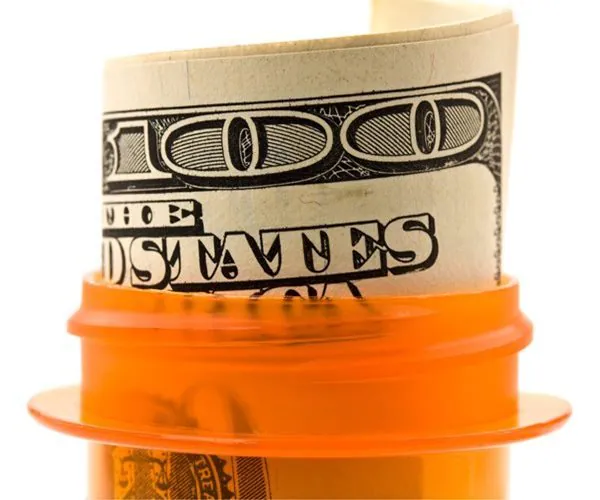US – FTC: Middlemen Unduly Influence US Drug Prices

Dreamstime
From Newsmax
The consolidation of pharmacies and health insurance companies through years of dealmaking has led to a handful of pharmacy benefit managers exercising outsized influence over prescription drug prices, the U.S. Federal Trade Commission said Tuesday.
Pharmacy benefit managers, or PBMs, act as middlemen between drug companies and consumers. They negotiate volume discounts and fees with drug manufacturers, create lists of medications that are covered by insurance, and reimburse pharmacies for prescriptions.
MORE REGULATION SOUGHT
The FTC argues the three biggest PBMs — managing 79% of U.S. prescription drug claims — have greatly enriched themselves at the expense of smaller pharmacies and consumers, according to an interim staff report calling for possible greater regulation.
“These powerful middlemen may be profiting by inflating drug costs and squeezing Main Street pharmacies,” the FTC said in its findings, two years into an investigation of top PBMs and their impact on prescription drug prices in the United States.
The three biggest PBMs are UnitedHealth Group Inc’s Optum unit, CVS Health Corp.’s CVS Caremark and Cigna Corp.’s Express Scripts.
UnitedHealth, CVS, and Express Scripts denounced the findings. Express Scripts said the report contained “blatant” inaccuracies and its conclusions were biased. Increased regulation of PBMs would reward drugmakers and hurt consumers, CVS said. The FTC published an incomplete report with flawed conclusion, said Optum Rx.
PBM shares slipped upon the report’s release, with CVS down 1%, Humana falling 1.2%, and UnitedHealth down marginally.
The report included some closely guarded information about how companies contract for formulary placement for drugs.
Formulary drugs is the term used for the list of medications covered by various insurance plans.
The report also detailed how the three largest PBMs recently established separate affiliated entities called group purchasing organizations, or PBM GPOs, that negotiate contracts and rebates with drugmakers, traditionally something the PBMs engaged in directly. A CVS spokesperson said the company uses its GPO, Zinc, to lower prices for Caremark clients. Cigna did not address the issue in its response to Reuters questions.
RENEWED EFFORT
The report comes amid a renewed effort by U.S. President Joe Biden to combat soaring healthcare costs and drug prices after the passage of his landmark Inflation Reduction Act.
The PBM market has become highly concentrated with the largest companies being vertically integrated with the largest insurance companies and pharmacy chains. This has given PBMs significant power over prescription drug prices and the ability of Americans to access them, the FTC said.
PBMs set which drugs are covered by insurance and at what price, as well as which pharmacies patients can use to fill their prescriptions. They do this without transparency or public accountability, the report said.
Of the three biggest PBMs, CVS owns the nation’s largest retail pharmacy chain, as well as insurance company Aetna. UnitedHealth and Cigna also have insurance units and own specialty pharmacies.
The FTC also investigated Humana Pharmacy Solutions, Prime Therapeutics and MedImpact Healthcare Systems. These six companies together control over 90% of the market
Prime Therapeutics said it was not owned or affiliated with any single insurer or pharmacy. MedImpact did not respond to requests for comment and Humana declined to comment.
The market consolidation has led to PBMs favoring their own affiliated businesses, which creates conflicts of interest that prevent smaller independent pharmacies from staying competitive by steering patients away from them, the FTC said.
PBMs are also able to lock independent pharmacies into unfair contracts that do not accurately reflect the final payment amounts these pharmacies will get, the FTC said.
30% TAKE
CVS said independent pharmacies account for 30% of Caremark’s pharmacy network spend and that they are on average reimbursed at a higher rate than CVS pharmacies. The FTC said it found evidence that PBMs and the makers of brand drugs negotiate rebates — volume-based discounts for plans and pharmacies — conditioned on limiting access to cheaper generic competitors.
Several PBMs were issued orders to hand over data but were not forthcoming and timely in their responses, the report said, which has hindered the investigation.
CVS said it complied with all data requests. Cigna said it provided the agency with millions of lines of data and documents. UnitedHealth said it handed the FTC six years worth of data. Prime said it fully complied with the agency’s requests.
© 2024 Thomson/Reuters. All rights reserved.
For more on this story go to: NEWSMAX





